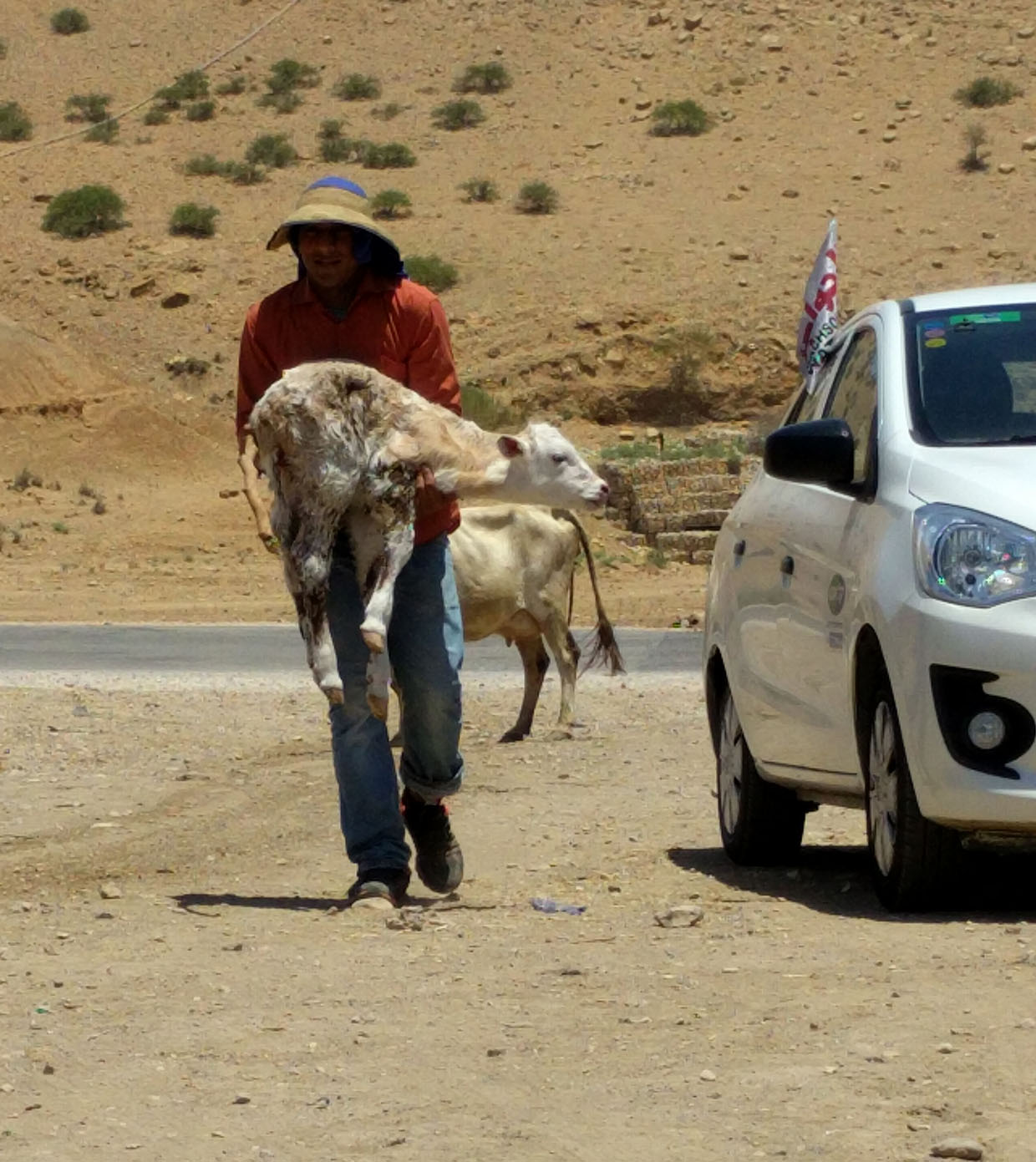Za`atara and Hamra Checkpoints, Visit with families in the Palestinian Jordan Valley


Search operation in the tents of Al Maleh shepherds
About two weeks ago, the day after the Tel Aviv terrorist attack, a search operation was conducted at Al Maleh. 3 army jeeps, each carrying 3-4 soldiers and officers, arrived at dawn (at the beginning of the Ramadan fast) in the encampments. Every tent was searched, all the inhabitants’ belongings were scattered all over, and all of this – without any explanation. Naturally the army did not find whatever it was seeking. In one family’s tent a water bottle was found “suspected” to be army property. Later this was proven to be a mistake. It was not quite clear what was being transmitted by this “operation”. The shepherd community is noted for its obedience and paralyzing fear of the authorities. No a single terrorist attack has taken place in the Palestinian Jordan Valley ever since the First Intifada. People explained the event: “soldiers are nervous because of the attack in Tel Aviv”. Where are they and where is Tel Aviv?...
Another attempt to obtain water for private consumption by people who have not yet had running water in their dwelling in this 21st century – has been determinedly thwarted.
After the attempt to connect the village of Akaba to the water supply system was cruelly crushed a few months ago, this time it happened to Abu Saker of Hadidiya, who tried to obtain water through pipes (at his own expense). The Civil Administration officials were immediately on the scene, always at the ready to destroy and steal the pipes, several kilometers long. In Akaba, too, they confiscated pipes that cost a lot of money. By what right? (More information in Daphne’s report of June 23rd).
officials were immediately on the scene, always at the ready to destroy and steal the pipes, several kilometers long. In Akaba, too, they confiscated pipes that cost a lot of money. By what right? (More information in Daphne’s report of June 23rd).
A family bereaved by the unexploded shells the army leaves on the grazing grounds We paid a visit to D.’s family, who 8 years ago lost their 18 year-old son, killed by live ammunition which the army left behind. This is an area which, as the army well knows, serves the shepherds to graze their flocks. The family is still grieving. They showed us the autopsy report (obtained only by a lawyer), chillingly describing what was left of his body after the blast.
Every year 3-4 shepherds are killed in the Palestinian Jordan Valley, most of them boys, while many more are wounded and maimed. The army spares expenses needed for exploding or collecting such ammunition, and does not catch up. Thus, thousands of “live” unexploded shells remain throughout the Valley, to be picked up and played with by some boy who is bound to end his life this way. And if these were settler children?
The situation at the checkpoints: At Zaatara Junction, Maale Efrayim and Hamra there were no inspections. Zaatara and Hamra are manned by soldiers.
The barriers at the villages: The entrance to Jawarish is still blocked (ever since the outbreak of the recent Intifada, I believe). The entrance to Akraba village has been opened.
We visited with families at Samara, Khalat Makhoul (where we delivered the television which Yaacov Manor acquired for B.), and En Al Hilwa.
And on a more optimistic note – there are more and more students (mainly female) who grew up in the tent encampments and are currently studying at the university. The two families we visited are making enormous efforts so their daughters and sons study at the university. Some of them attend the Open University at Tubas, which is less expensive. Parents who have not had the privilege of an education acknowledge its importance and do everything so their children might study. Just like Jewish mothers. Still, they told us about children who go out with the flocks as young as 6 years of age, and remain illiterate. The shepherd community in the Jordan Valley, too, is diverse.
